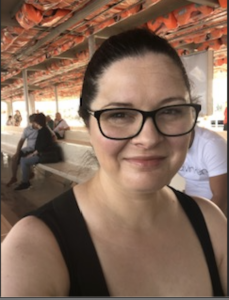Cass Macdonald, a nurse from Scotland, writes about working as a disabled person in the NHS and how ableism impacts those with protected characteristics. As more NHS staff are affected by Long Covid, ableist discrimination is likely to become a real issue. Thanks for Alexander Hardy’s assistance in framing this post. Cass is on Twitter as @CM_7505
I want you to imagine that someone has told you that you cannot have a condition, because of how you look, your age or how you behave. Imagine being told you cannot possibly do your job, because of that condition. Imagine being berated or criticised for “not keeping up.” For not “getting better”. Being told you cannot consider applying for promotion or specific post, that everyone is “a little bit like you”. Or told that your service cannot possibly consider adjustments or that they are not appropriate. Imagine your condition is being used to push you out of your job.
Now imagine that you’ve got a condition, you’re extra tired, as managing that condition, as well as others’ beliefs is stressful and tiring on top of day-to-day life. Maybe you can manage to work, but not do other things other people wouldn’t think twice about. Perhaps this is all new to you, having been fit, active with no previous health conditions or those that had little to no impact on your life.
This is now the reality for many of our colleagues, managers and others within our healthcare professions and across the NHS.
I was disabled before I had Covid. Perhaps not “disabled” in the way YOU might think, but was I having to manage conditions that meant I had protected characteristics with a significant impact on me? Yes. Has this meant I have had to put up with comments and discrimination, whether meant negatively or not? Also, yes. It has at times been frustrating and caused a lot of emotional distress. This is ableism.
Many of our colleagues now have Long Covid. Some have left their posts due to continued ill health. Many are on reduced pay, some on no pay. All of them have health issues which may or may not be long term. Many, unfortunately, report a lack of support and empathy or misunderstanding.
Long Covid, whether or not classed as a disability itself, does meet the dictionary definition of a disability. It has a significant impact on someone’s ability to engage in daily activities which include work. This does not mean that they cannot work. They need support and adjustment to be able to do their jobs and those active listening skills we were all taught during training. Long Covid affects everyone differently.
Colleagues with this condition find that they cannot “keep up” like they used to and should not feel pressured to do so. They should not feel like they have less worth, due to whatever condition or conditions they now have. Nobody with a disability should feel like this. They need the ongoing support of occupational health, unions, welfare advice on benefits or government support and so on. They will probably be attending medical or other health appointments. Remember that your lived experience and what you see or hear affects your viewpoint of life and others. You might need to challenge this unconscious or conscious bias.
With so many of us affected, it is time to rethink how we, as a society and healthcare service, view long term conditions and disabilities. It is time to challenge our pre-conceived ideas and beliefs about them; we should support our colleagues when they encounter ableism too. We should challenge the notion that disabled people cannot work, as that is absolutely untrue. NHS organisations need to look at posts and see where some can be modified. Departments could look within directorates to see if tasks and posts can be modified to better suit disabled healthcare professionals. Redeployment should not be used as a method of moving staff on or even dismissing them altogether. Indeed, feedback around ableist experiences of this should be taken seriously and managed by organisations. Traditional ways of working, places of working in some cases need an overhaul and rethink. If, as a national service, we do not do this, we are likely to lose a wealth of experience in nurses, midwives and others. There may also be legal consequences as well.
Long Covid has been eye-opening for the health service and employees in many ways, not least as many colleagues struggle to come to terms with the fact they are now disabled. What we must do is change their experience and learn to accommodate this, as it will make us better colleagues and professionals in the end.
Use us, don’t lose us. But change is desperately needed.
